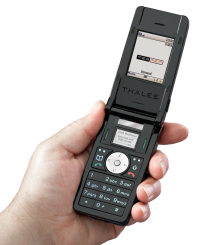Why can't we all have Obama's secure BlackBerry?

It surprised me a few years ago when I came across the first malware for mobile phones, in the form of Cabir for Symbian operating systems, yet knew it were to be an inevitability in the evolution of software nasties. Since then, more vulnerabilities have been discovered and as mobile phone use hasn't decreased, mobile users are becoming more of a target.
With the recent news of the GSM encryption being hacked, this led to an unprecedented level of worry and panic. My college colleague Adrian Kingsley-Hughes says there's little to be concerned about. But once again, mobile users are becoming increasingly aware of the threats we face with our mobile devices.

But surely if the technology exists, it should be rolled out to anyone and everyone. Fit the chip into high street phones, install the encryption software, and the world will be a happier, more secure place. The encryption is as good as it gets, certified by both Nato and the British government to be secure enough to send even the most sensitive of data.
Conspiracy theorists among us will no doubt see this lack of commercial encryption as a way for governments to monitor our calls, texts and other communications, thus technology such as this on a commercial scale would significantly reduce the intelligence gathered on us as citizens.
Sure, talking to your mum on the phone to discuss recipes or calling your best friend to have a moan probably won't constitute as state secrets, needing to be encrypted to the highest level possible to avoid interception. But what harm can it do? We all have the right to speak in confidence to others without having to worry about eavesdropping or tapping, so it seems almost right that this technology should be commercially available.
For the time being, if you want a commercially available technology which is almost impossible to intercept, believe it or not Skype can take credit for that one. Whoever manages to intercept voice-over-IP calls will be a a governmental hero; shortly before being bundled into an unmarked car never to be seen or heard of again.